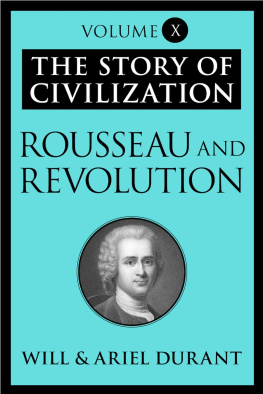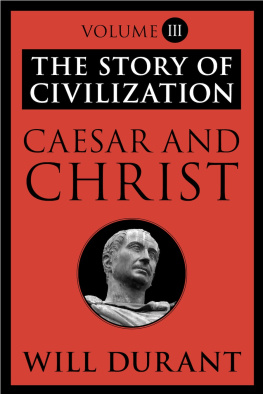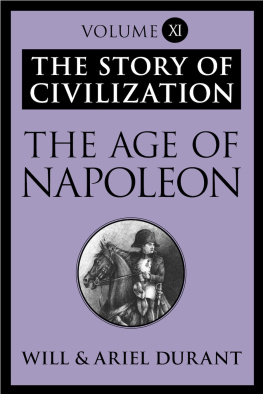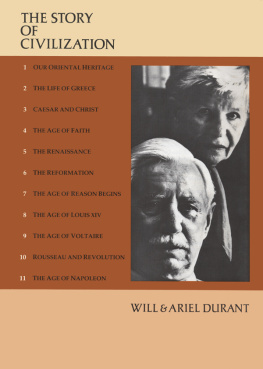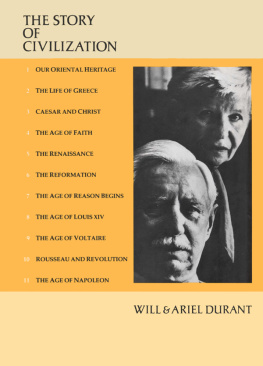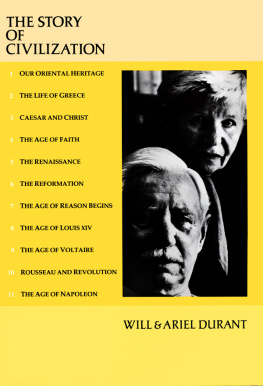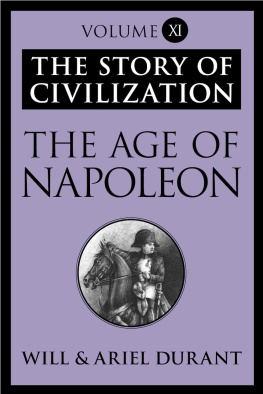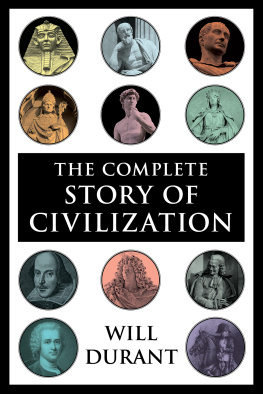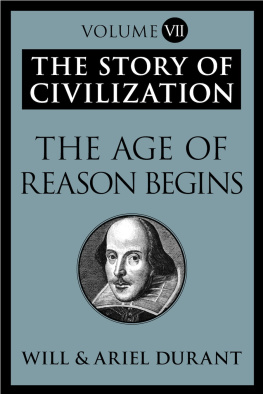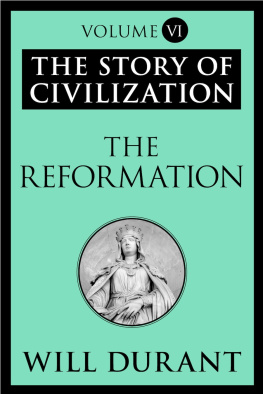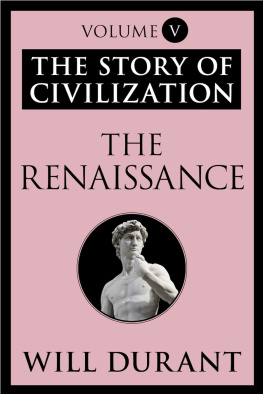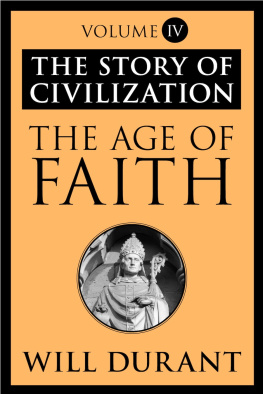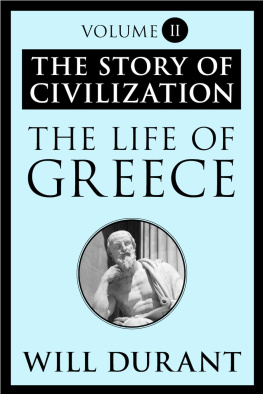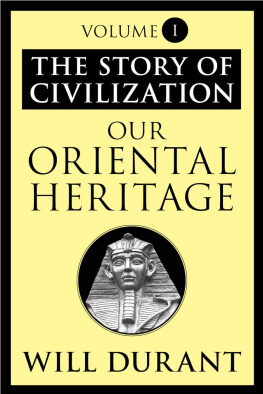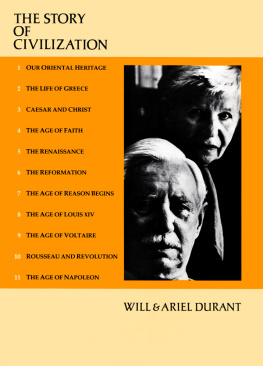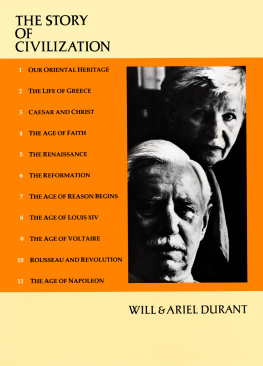Will Durant - The Story of Civilization Volume X: Rousseau and Revolution
Here you can read online Will Durant - The Story of Civilization Volume X: Rousseau and Revolution full text of the book (entire story) in english for free. Download pdf and epub, get meaning, cover and reviews about this ebook. year: 0, publisher: Simon & Schuster, genre: History. Description of the work, (preface) as well as reviews are available. Best literature library LitArk.com created for fans of good reading and offers a wide selection of genres:
Romance novel
Science fiction
Adventure
Detective
Science
History
Home and family
Prose
Art
Politics
Computer
Non-fiction
Religion
Business
Children
Humor
Choose a favorite category and find really read worthwhile books. Enjoy immersion in the world of imagination, feel the emotions of the characters or learn something new for yourself, make an fascinating discovery.
- Book:The Story of Civilization Volume X: Rousseau and Revolution
- Author:
- Publisher:Simon & Schuster
- Genre:
- Year:0
- Rating:4 / 5
- Favourites:Add to favourites
- Your mark:
- 80
- 1
- 2
- 3
- 4
- 5
The Story of Civilization Volume X: Rousseau and Revolution: summary, description and annotation
We offer to read an annotation, description, summary or preface (depends on what the author of the book "The Story of Civilization Volume X: Rousseau and Revolution" wrote himself). If you haven't found the necessary information about the book — write in the comments, we will try to find it.
The Story of Civilization Volume X: Rousseau and Revolution — read online for free the complete book (whole text) full work
Below is the text of the book, divided by pages. System saving the place of the last page read, allows you to conveniently read the book "The Story of Civilization Volume X: Rousseau and Revolution" online for free, without having to search again every time where you left off. Put a bookmark, and you can go to the page where you finished reading at any time.
Font size:
Interval:
Bookmark:

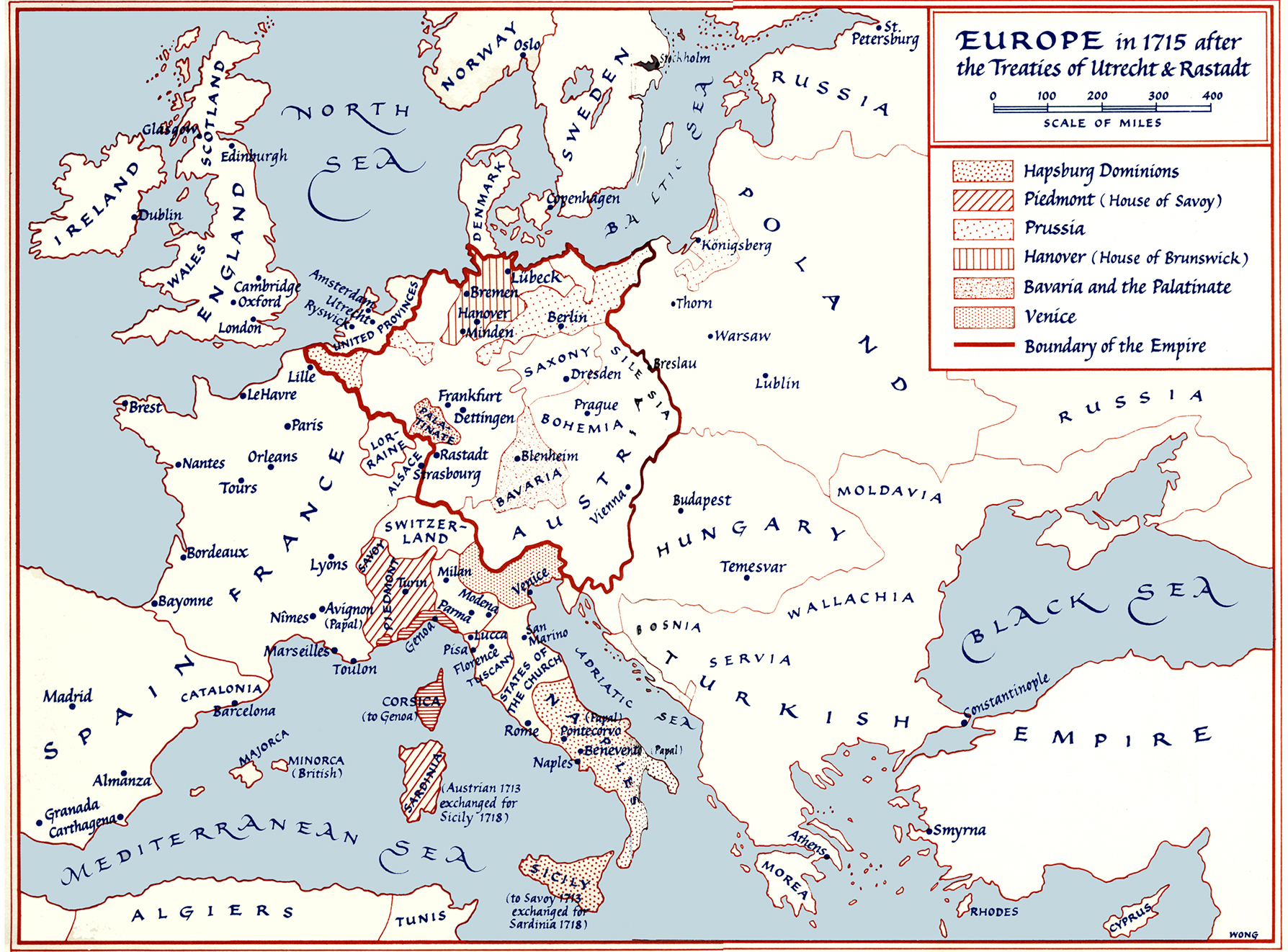
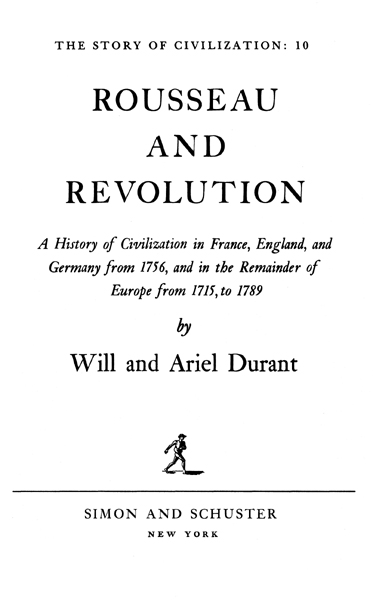
TO OUR BELOVED DAUGHTER
ETHEL BENVENUTA
WHO, THROUGH ALL THESE VOLUMES, HAS BEEN
OUR HELP AND OUR INSPIRATION
Dear Reader:
This is the concluding volume of that Story of Civilization to which we devoted ourselves in 1929, and which has been the daily chore and solace of our lives ever since.
Our aim has been to write integral history: to discover and record the economic, political, spiritual, moral, and cultural activities of each civilization, in each age, as interrelated elements in one whole called life, and to humanize the narrative with studies of the protagonists in each act of the continuing drama. While recognizing the importance of government and statesmanship, we have given the political history of each period and state as the oft-told background, rather than the substance or essence of the tale; our chief interest was in the history of the mind. Hence in matters economic and political we have relied considerably upon secondary sources, while in religion, philosophy, science, literature, music, and art we have tried to go to the sources: to see each faith at work in its own habitat, to study the epochal philosophies in their major productions, to visit the art in its native site or later home, to enjoy the masterpieces of the worlds literature, often in their own language, and to hear the great musical compositions again and again, if only by plucking them out of the miraculous air. For these purposes we have traveled around the world twice, and through Europe unnumbered times from 1912 to 1966. The humane reader will understand that it would have been impossible, in our one lifetime, to go to the original sources in economics and politics as well, through the sixty centuries and twenty civilizations of history. We have had to accept limits, and acknowledge our limitations.
We regret that we allowed our fascination with each canto of mans epic to hold us too willingly, with the result that we find ourselves exhausted on reaching the French Revolution. We know that this event did not end history, but it ends us. Unquestionably our integral and inclusive method has led us to give to most of these volumes a burdensome length. If we had written shredded historythe account of one nation or period or subjectwe might have spared the readers time and arms; but to visualize all phases in one narrative for several nations in a given period required space for the details needed to bring the events and the personalities to life. Each reader will feel that the book is too long, and that the treatment of his own nation or specialty is too brief.
French and English readers may wish to confine their first perusal of this volume to vision Europe as a whole in those thirty-three eventful years from the Seven Years War to the French Revolution.
We shall not sin at such length again; but if we manage to elude the Reaper for another year or two we hope to offer a summarizing essay on The Lessons of History.
W ILL AND A RIEL D URANT
Los Angeles
May 1, 1967
We are grateful to Yale University and the McGraw-Hill Book Company for permission to quote from Boswell on the Grand Tour: Germany and Switzerland, and from Boswell in Holland. It would be difficult to write about Boswell without nibbling at the feast offered by the Yale Editions of the Private Papers of James Boswell, so carefully edited and so handsomely published.
We are indebted also to the author and to W. W. Norton & Company for permission to quote a letter from Marc Pincherles excellent Vivaldi.
Our warm appreciation to Sarah and Harry Kaufman for their long and patient help in classifying the material, and to our daughter Ethel for not only typing the manuscript immaculately, but for improving the text in many ways. Our thanks to Mrs. Vera Schneider for her scholarly editing of the manuscript.
NOTES ON THE USE OF THIS BOOK
1. Dates of birth and death are in the Index.
2. Italics in excerpts are never ours unless so stated.
3. We suggest the following rough equivalents, in terms of United States dollars of 1965, for the currencies mentioned in this book:
carolin, $22.50
ciguato, $6.25
crown, $6.25
doppio, $25.00
ducat, $6.25
cu, $3.75
florin. $6.25
franc, $1.25
groschen, $1.25
guilder, $5.25
guinea, $26.25
gulden, $5.25
kreutzer, $2.50
lira, $1.25
livre, $1.25
louis dor, $25.00
mark, $1.25
penny, $.10
pistole, $12.50
pound, $25.00
reale, $.25
ruble, $10.00
rupee, $4.00
shilling, $1.25
sol, $1.25
sou, $.05
thaler, $5.00
4. The location of works of art, when not indicated in the text, will be found in the Notes. In allocating such works the name of the city will imply its leading gallery, as follows:
AmsterdamRijksmuseum
BerlinStaatsmuseum
BolognaAccademia di Belle Arti
BudapestMuseum of Fine Arts
ChicagoArt Institute
CincinnatiArt Institute
ClevelandMuseum of Art
DetroitInstitute of Art
DresdenGemlde-Galerie
DulwichCollege Gallery
EdinburghNational Gallery
FrankfurtStdelsches Kunstinstitut
GenevaMuse dArt et dHistoire
The HagueMauritshuis
Kansas CityNelson Gallery
LeningradHermitage
LondonNational Gallery
MadridPrado
MilanBrera
NaplesMuseo Nazionale
New YorkMetropolitan Museum of Art
San Marino, CaliforniaHuntington Art Gallery
ViennaKunsthistorisches Museum
WashingtonNational Gallery
T HE page number in the captions refers to a discussion in the text of the subject or the artist, and sometimes both.
Part I. This section follows
Part II. This section follows
PRELUDE
Rousseau Wanderer
1712-56
H OW did it come about that a man born poor, losing his mother at birth and soon deserted by his father, afflicted with a painful and humiliating disease, left to wander for twelve years among alien cities and conflicting faiths, repudiated by society and civilization, repudiating Voltaire, Diderot, the Encyclopdie, and the Age of Reason, driven from place to place as a dangerous rebel, suspected of crime and insanity, and seeing, in his last months, the apotheosis of his greatest enemyhow did it come about that this man, after his death, triumphed over Voltaire, revived religion, transformed education, elevated the morals of France, inspired the Romantic movement and the French Revolution, influenced the philosophy of Kant and Schopenhauer, the plays of Schiller, the novels of Goethe, the poems of Wordsworth, Byron, and Shelley, the socialism of Marx, the ethics of Tolstoi, and, altogether, had more effect upon posterity than any other writer or thinker of that eighteenth century in which writers were more influential than they had ever been before? Here, if anywhere, the problem faces us: what is the role of genius in history, of man versus the mass and the state?
Europe was ready for a gospel that would exalt feeling above thought. It was tired of the restraints of customs, conventions, manners, and laws. It had heard enough of reason, argument, and philosophy; all this riot of unmoored minds seemed to have left the world devoid of meaning, the soul empty of imagination and hope; secretly men and women were longing to believe again. Paris was weary of Paris, of the turmoil and hurry, the confinement and mad competition of city life; now it idealized the slower pace of the countryside, where a simple routine might bring health to the body and peace to the mind, where one might see modest women again, where all the village would meet in weekly armistice at the parish church. And this proud progress, this vaunted emancipation of the mindhad they put anything in place of what they had destroyed? Had they given man a more intelligible or inspiring picture of the world and human destiny? Had they improved the lot of the poor, or brought consolation to bereavement or pain? Rousseau asked these questions, gave form and feeling to these doubts; and after his voice was stilled all Europe listened to him. While Voltaire was being idolized on the stage and at the Academy (1778), and while Rousseau, berated and despised, hid in the obscurity of a Paris room, the age of Rousseau began.
Font size:
Interval:
Bookmark:
Similar books «The Story of Civilization Volume X: Rousseau and Revolution»
Look at similar books to The Story of Civilization Volume X: Rousseau and Revolution. We have selected literature similar in name and meaning in the hope of providing readers with more options to find new, interesting, not yet read works.
Discussion, reviews of the book The Story of Civilization Volume X: Rousseau and Revolution and just readers' own opinions. Leave your comments, write what you think about the work, its meaning or the main characters. Specify what exactly you liked and what you didn't like, and why you think so.

